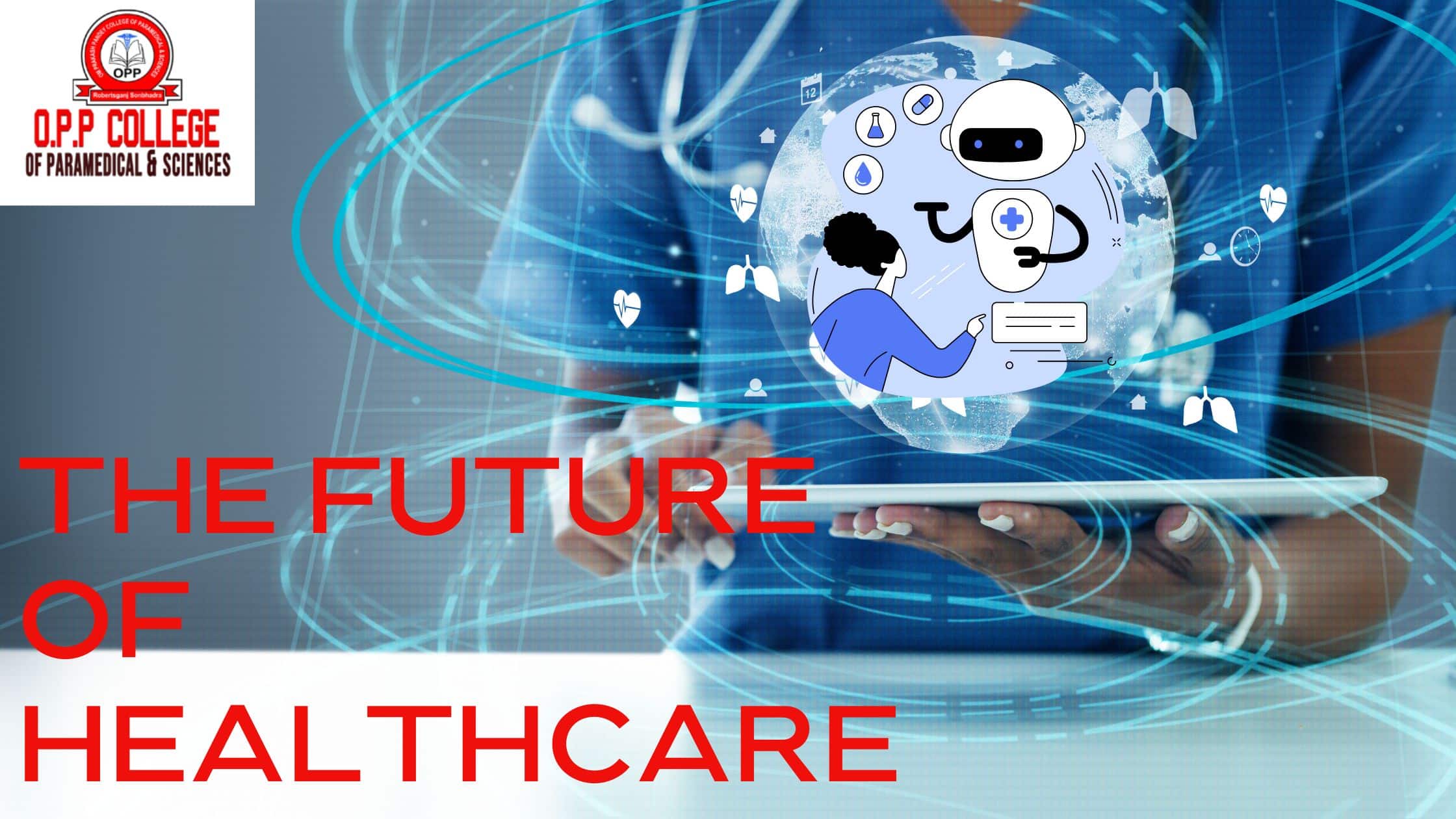
The healthcare landscape is in the midst of a profound transformation. With advancements in technology and a growing focus on patient-centric care, the future of healthcare is shaping up to be both exciting and revolutionary. In this article, we will explore some of the most cutting-edge innovations that are set to redefine the healthcare industry.
Table of Contents
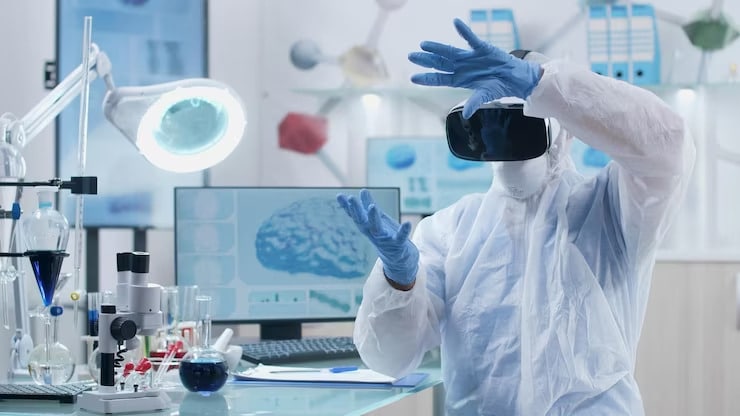
1. Telemedicine and Remote Monitoring
Telemedicine has rapidly gained popularity, especially in the wake of the COVID-19 pandemic. It allows patients to consult with healthcare professionals remotely, making healthcare more accessible and convenient. But it doesn’t stop there. Remote monitoring devices, such as wearable sensors and apps, are enabling individuals to track their vital signs and health metrics in real time. This data can be instantly shared with healthcare providers, facilitating early intervention and personalized care.
2. Artificial Intelligence (AI) and Machine Learning
AI and machine learning are revolutionizing healthcare in numerous ways. From diagnostic algorithms that can detect diseases like cancer and diabetes at an earlier stage to predictive analytics that help hospitals optimize resource allocation, AI is a game-changer. It can also enhance the drug discovery process, making it faster and more efficient, ultimately bringing new treatments to patients more quickly.
3. 3D Printing in Medicine
The use of 3D printing technology in medicine is expanding rapidly. Surgeons can now create patient-specific models to plan complex surgeries, increasing precision and reducing risks. 3D printing is also being used to produce customized prosthetics, implants, and even organs. This technology holds the promise of solving the organ transplant shortage crisis.
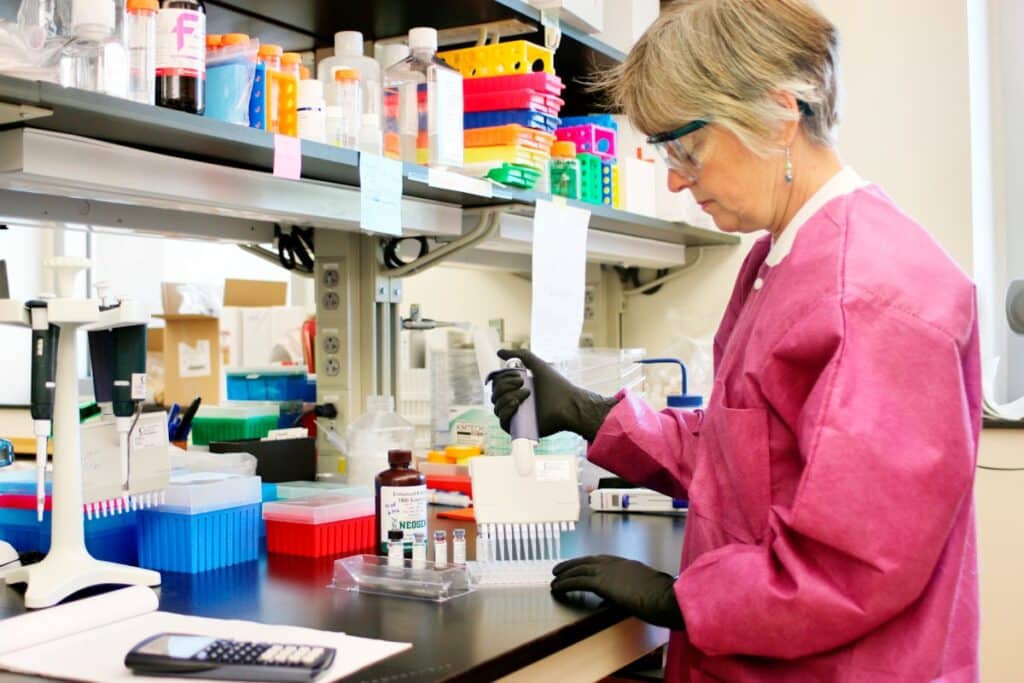
4. Virtual Reality (VR) and Augmented Reality (AR)
VR and AR are finding applications in medical training and patient care. Medical students can use VR to simulate surgeries and practice procedures, providing a safe and immersive learning experience. In patient care, AR can assist surgeons by providing real-time data and visual overlays during procedures, enhancing their precision.
5. Precision Medicine
No two individuals are exactly alike, and this is where precision medicine comes into play. It tailors medical treatment and interventions to an individual’s unique genetic, environmental, and lifestyle factors. This approach can lead to more effective treatments with fewer side effects. The rise of genomics has played a pivotal role in advancing precision medicine.
6. Blockchain for Healthcare
Blockchain technology is gaining ground in healthcare for its ability to secure and streamline data sharing. It ensures the integrity and privacy of patient records, facilitates interoperability among different healthcare systems, and reduces fraud. Patients have more control over their data, and healthcare providers can access accurate information quickly.
7. Robotics in Surgery
Robot-assisted surgery has become increasingly common in the operating room. Robots offer greater precision, stability, and dexterity, allowing surgeons to perform complex procedures with minimally invasive techniques. Patients benefit from reduced pain, faster recovery times, and smaller incisions.
8. The Internet of Things (IoT) in Healthcare
IoT devices are being used to track patients’ health and provide data for better decision-making. Smart devices, such as insulin pumps and medication dispensers, can send alerts and reminders to patients and their caregivers. This connectivity improves patient adherence to treatment plans and enhances overall health outcomes.
9. Robotics in the Future of Healthcare
Robotics is making inroads into surgery, rehabilitation, and patient care. Robots can perform precise surgical procedures with minimal invasiveness, reducing recovery times. In hospitals, robots can handle tasks like medication delivery and disinfection, reducing the burden on healthcare staff.
“Unlock your path to a rewarding healthcare career! Enroll in our paramedical college today and embark on a journey of knowledge, compassion, and opportunity. Your future starts
10. Personalized Medicine and Genomics
Advancements in genomics are paving the way for personalized medicine. Tailoring treatments based on an individual’s genetic makeup and health history can lead to more effective therapies with fewer side effects. Genetic testing and targeted therapies are becoming increasingly common, heralding a new era of precision healthcare.
Conclusion
The future of healthcare is undeniably bright, with innovations that promise to improve the quality of care, increase accessibility, and reduce costs. These technologies are not just concepts; they are actively being integrated into healthcare systems worldwide, changing the way we approach wellness and medical treatment.
As healthcare continues to evolve, it’s essential for professionals and patients alike to stay informed about these innovations. The future of healthcare is one where technology and human expertise come together to provide more personalized, effective, and efficient care. Be prepared to embrace these innovations because they are the future you can’t afford to miss.
-
रतन टाटा(Ratan Tata): भारत के प्रेरणादायक उद्योगपति और परोपकारी

प्रस्तावना रतन टाटा(Ratan Tata), भारत के प्रेरणादायक उद्योगपति और परोपकारी, भारत के सबसे सम्मानित उद्योगपतियों में से एक हैं, जिन्होंने अपनी सूझबूझ, निष्ठा, और सामाजिक जिम्मेदारी के साथ न केवल टाटा समूह को नई ऊंचाइयों तक पहुंचाया, बल्कि देश और दुनिया पर भी एक अमिट छाप छोड़ी है। उनकी सादगी, नेतृत्व कौशल और परोपकारी दृष्टिकोण…
-
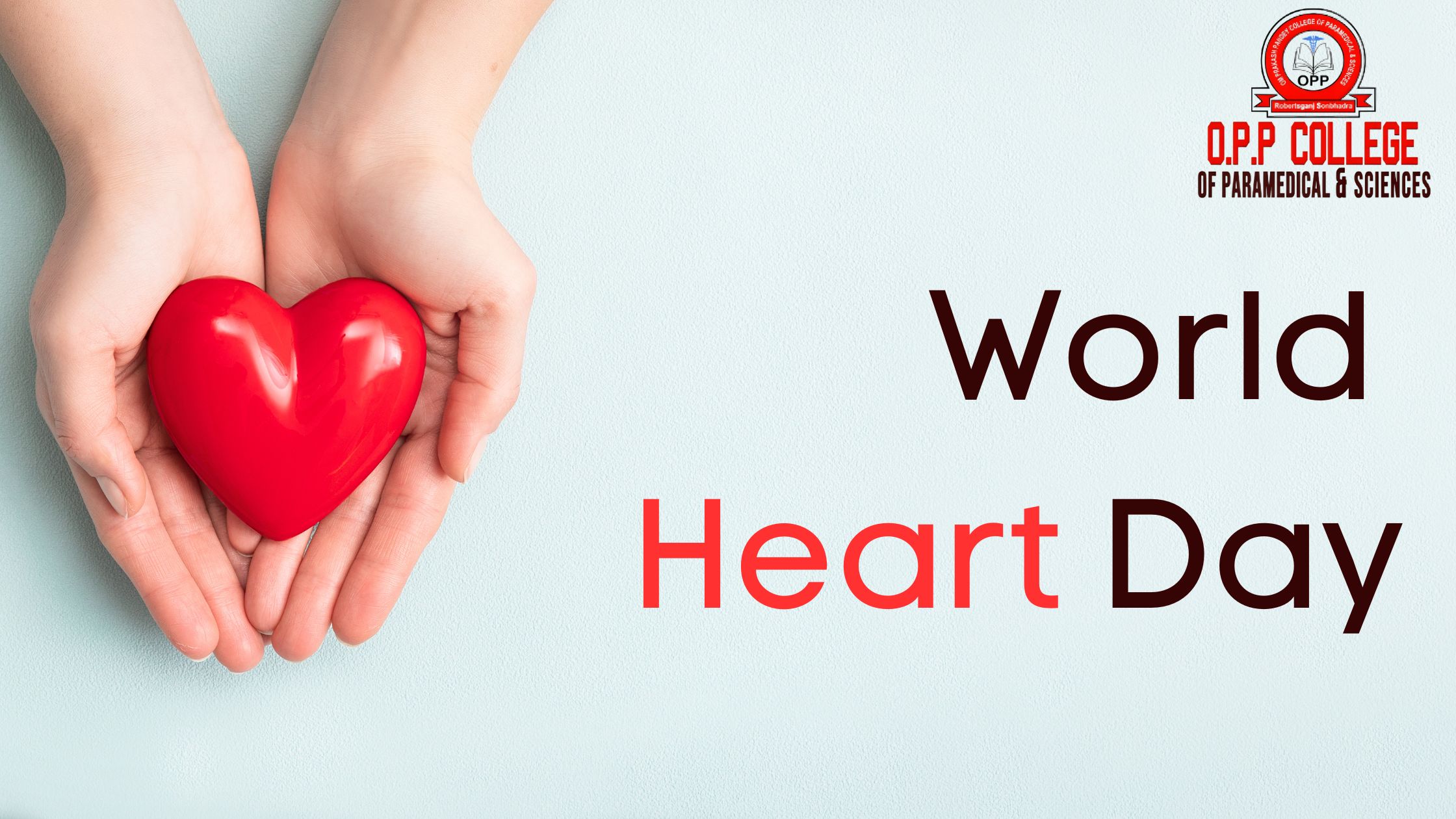
World Heart Day सेलिब्रेशन, कारण और इतिहास World Heart Day हर साल 29 सितंबर को मनाया जाता है ताकि हृदय संबंधी बीमारियों (Cardiovascular Diseases – CVD) के प्रति जागरूकता फैलाई जा सके और दुनियाभर में दिल की सेहत को प्रमोट किया जा सके। यह दिन व्यक्तियों, समुदायों और सरकारों को दिल से जुड़ी समस्याओं को…
-
What is a Paramedical Degree: Course, Salary, Scope, Fees, Benefits, Career, Jobs, Syllabus, Eligibility & More
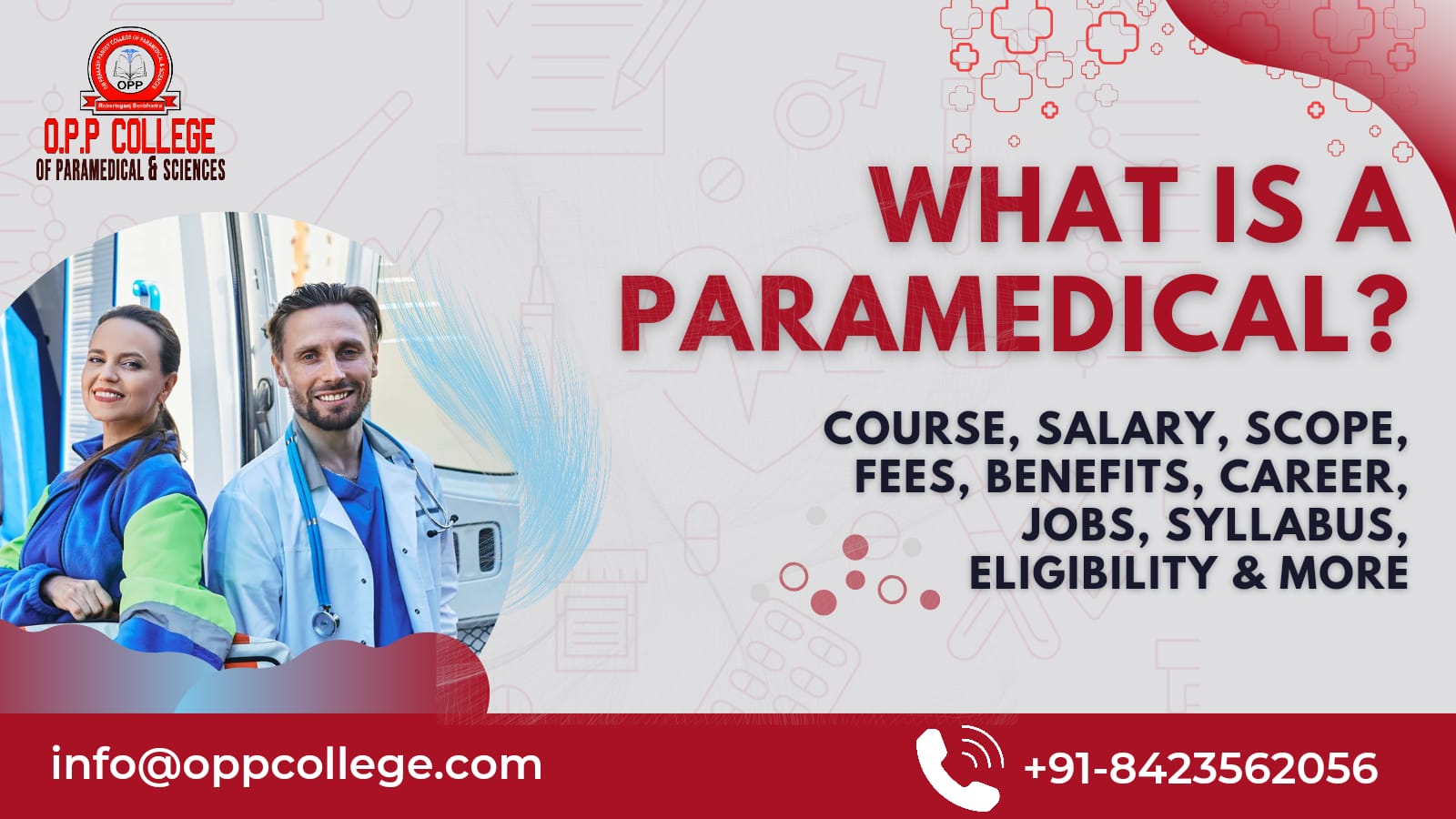
Are you considering a career in the healthcare field but unsure where to start? A Paramedical degree might just be the perfect choice for you. It’s an ideal blend of medical knowledge and practical skills, offering a promising career with numerous opportunities. In this article, we will dive deep into everything you need to know…
-
आज की दुनिया में पैरामेडिकल कोर्सेज (Paramedical Courses)की बढ़ती आवश्यकता
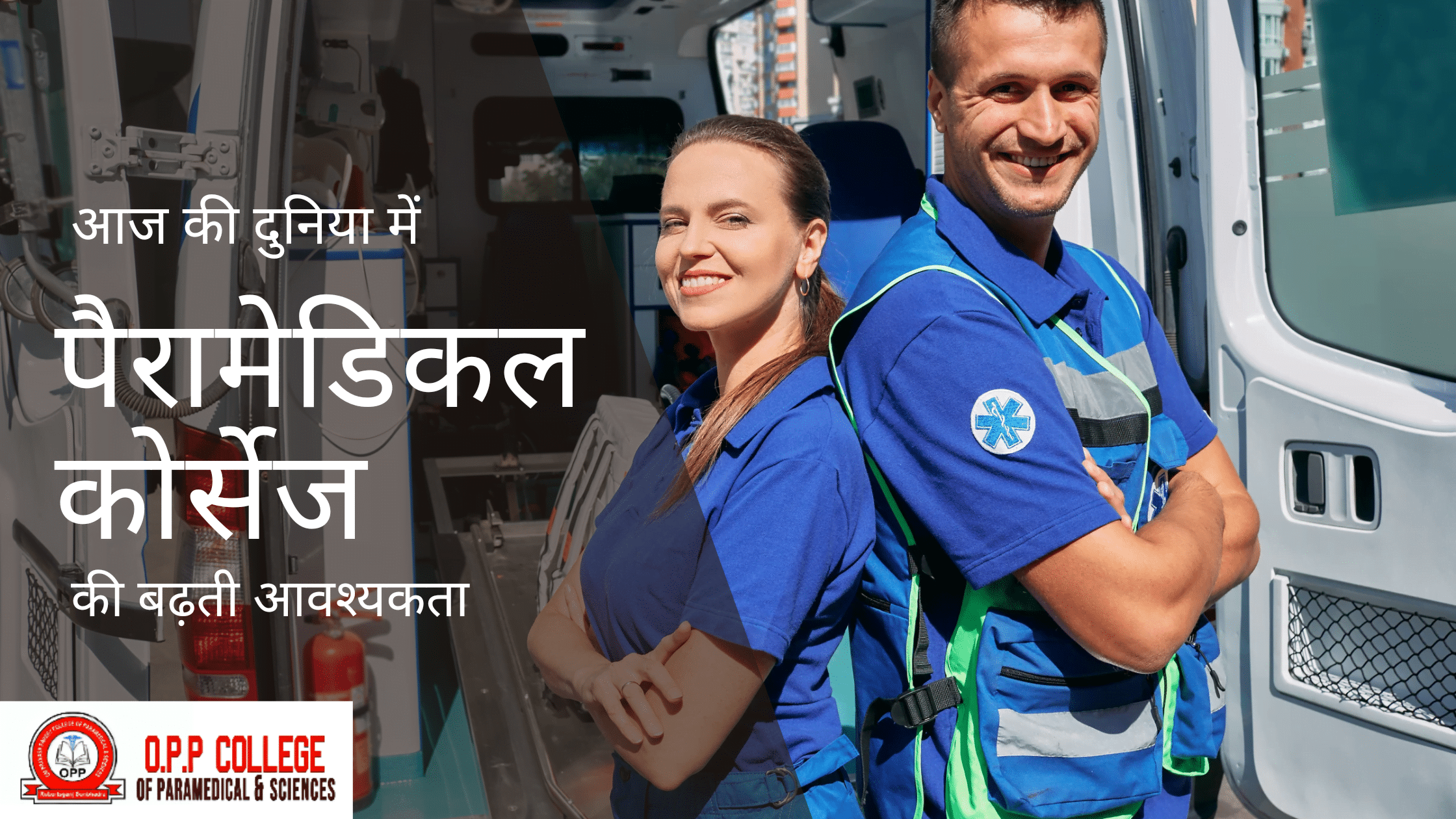
आज की तेजी से बदलती और विकसित हो रही दुनिया में, स्वास्थ्य सेवा पेशेवरों की मांग बढ़ रही है। डॉक्टरों और नर्सों के साथ, पैरामेडिकल पेशेवर भी स्वास्थ्य सिस्टम में महत्वपूर्ण भूमिका निभाते हैं, मरीजों को आवश्यक समर्थन और देखभाल प्रदान करते हैं। पैरामेडिकल कोर्सेज की महत्वपूर्णता को पूरा करने के लिए आज की दुनिया…
-
विश्व हृदय दिवस: हमारे ह्रदय को कैसे बचाएं और स्वस्थ ह्रदय कैसे बनाएं
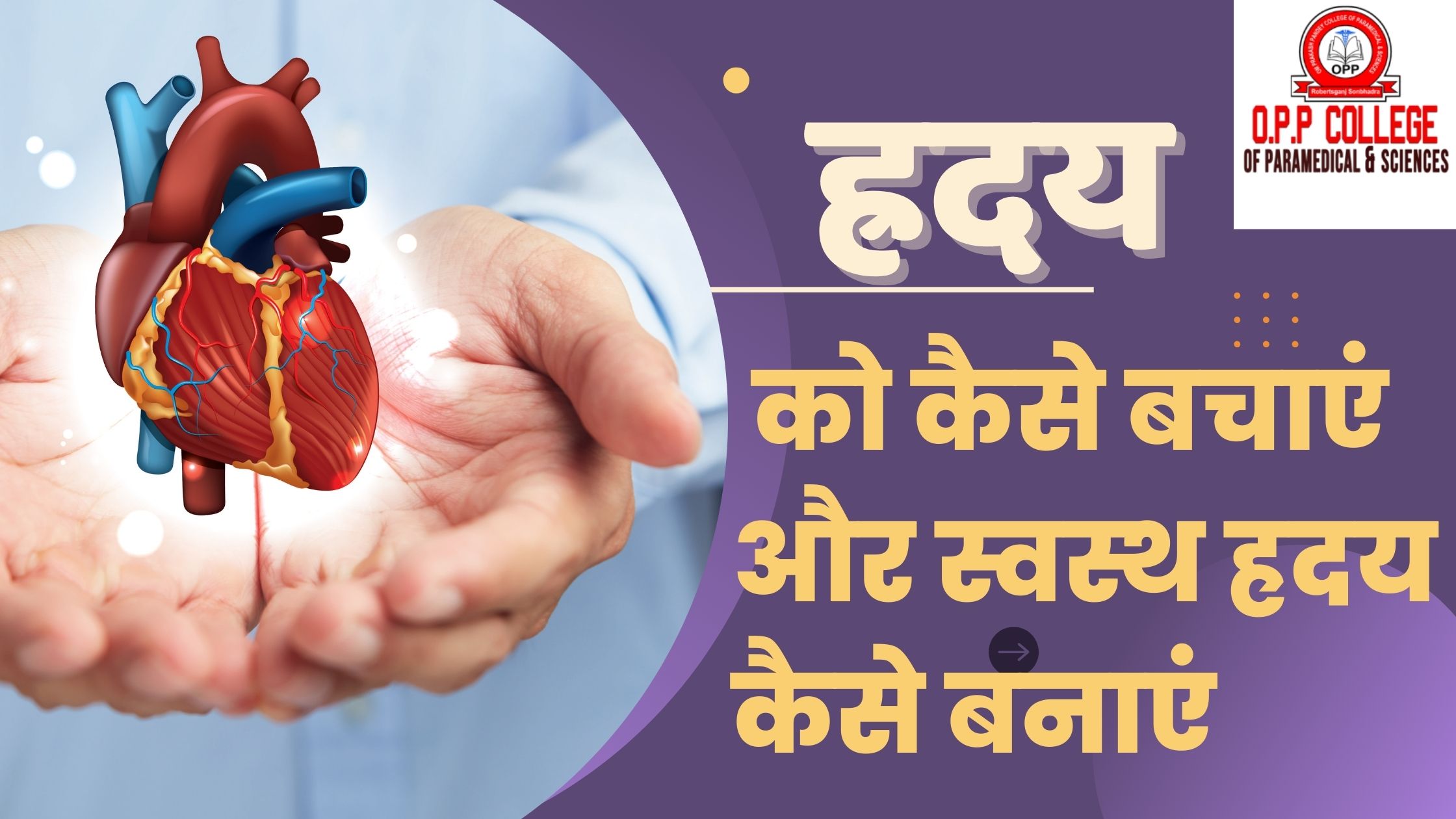
विश्व हृदय दिवस हर साल 29 सितंबर को मनाया जाता है, और यह दिन हमें हमारे दिल की सुरक्षा और स्वस्थ जीवनशैली के महत्व को याद दिलाता है। हमारे ह्रदय के बिना हम अपने जीवन की सार्थकता खो देंगे, इसलिए इसे स्वस्थ रखना हमारी प्राथमिकता होनी चाहिए। इस ब्लॉग में, हम आपको यह बताएंगे कि…
-
पीसीओडी(PCOD) और पीसीओएस(PCOS): महिलाओं की स्वास्थ्य की दिशा में एक नई दिशा

पीसीओडी(PCOD) और पीसीओएस(PCOS), दो ऐसी महिलाओं की स्वास्थ्य समस्याएँ हैं जो महिलाओं के हार्मोनल सिस्टम को प्रभावित करती हैं, और इनके कारण कई स्वास्थ्य समस्याएँ हो सकती हैं। पीसीओडी (Polycystic Ovarian Disease) और पीसीओएस (Polycystic Ovary Syndrome) दोनो महिलाओं के स्वास्थ्य सम्बंधित समस्या हैं जो आजकल के युग में बहुत आम हो गई हैं। ये…
-
CMS&ED (Diploma in Community Medical Service and Essential Drugs): Empowering Healthcare Professionals for Better Communities
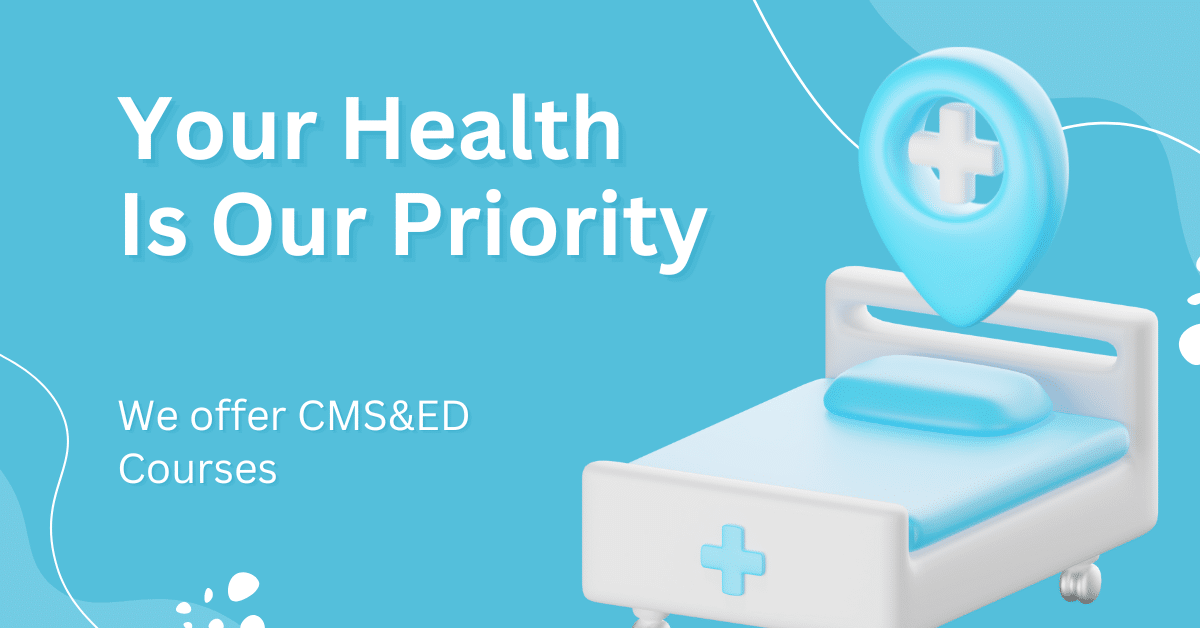
Do you know about CMS&ED Courses? Are you passionate about making a positive impact in your community? Are you eager to explore a career that combines management skills with a focus on environmental sustainability and development? Look no further than OPP College’s comprehensive CMS&ED courses! Our institution is dedicated to providing top-notch education, equipping students…
-
A Career in Medical Laboratory Technology: The DMLT
What is DMLT? DMLT stands for Diploma in Medical Laboratory Technology. It is a diploma course that provides students with the necessary knowledge and skills to work in medical laboratories. The course typically lasts for two years and covers various aspects of laboratory testing, including clinical biochemistry, pathology, microbiology, hematology, and blood banking. Students learn…
-
Cancer History The history of cancer dates back thousands of years, with references to the disease found in ancient Egyptian, Greek, and Roman texts. The word “cancer” comes from the Latin word for crab, due to the appearance of some tumors resembling a crab’s claw. In the 19th century, advances in medical technology allowed for…
-
World Diabetes Day: छोटे बदलाव, बड़ा फर्क
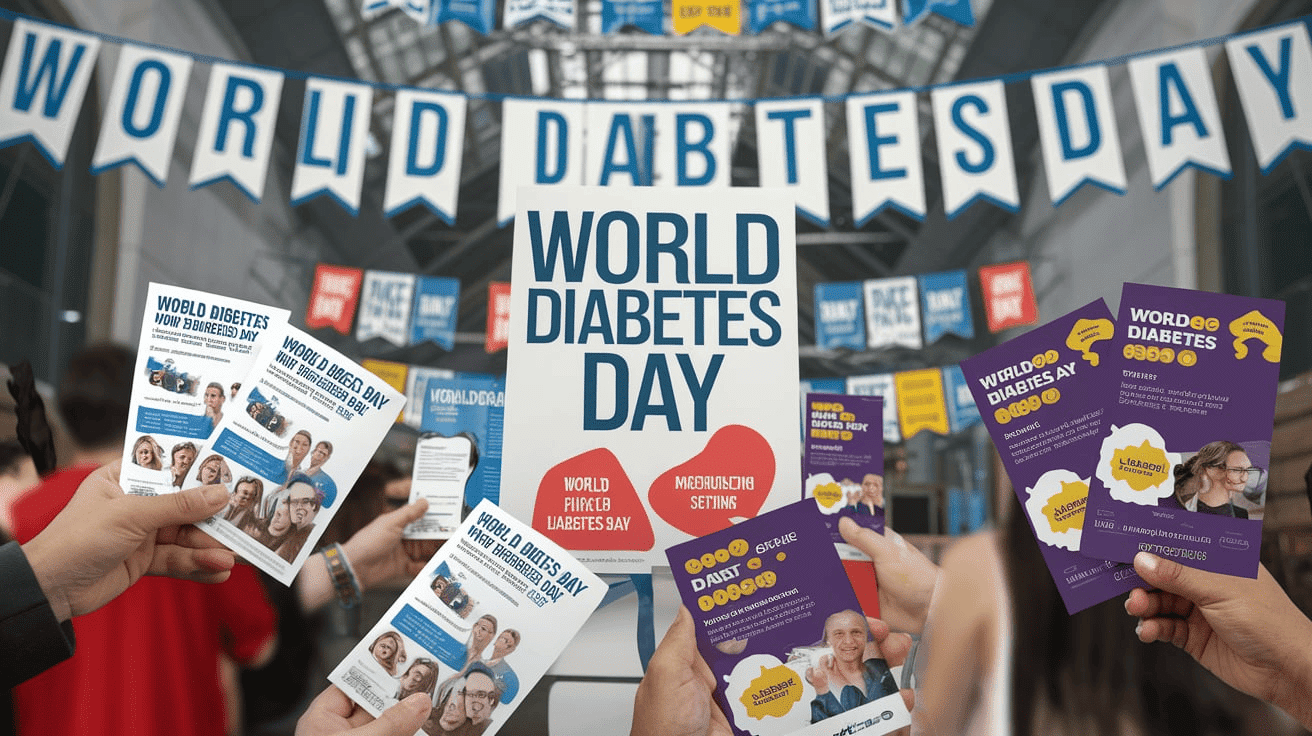
हर साल 14 नवंबर को World Diabetes Day मनाया जाता है, जिसका उद्देश्य दुनियाभर में diabetes awareness को बढ़ावा देना और लोगों को diabetes prevention और management के बारे में शिक्षित करना है। इस दिन का महत्व खासकर इसलिए भी है क्योंकि यह इंसुलिन की खोज करने वाले डॉक्टर फ्रेडरिक बेंटिंग का जन्मदिन भी है।…
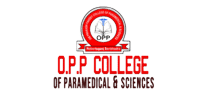
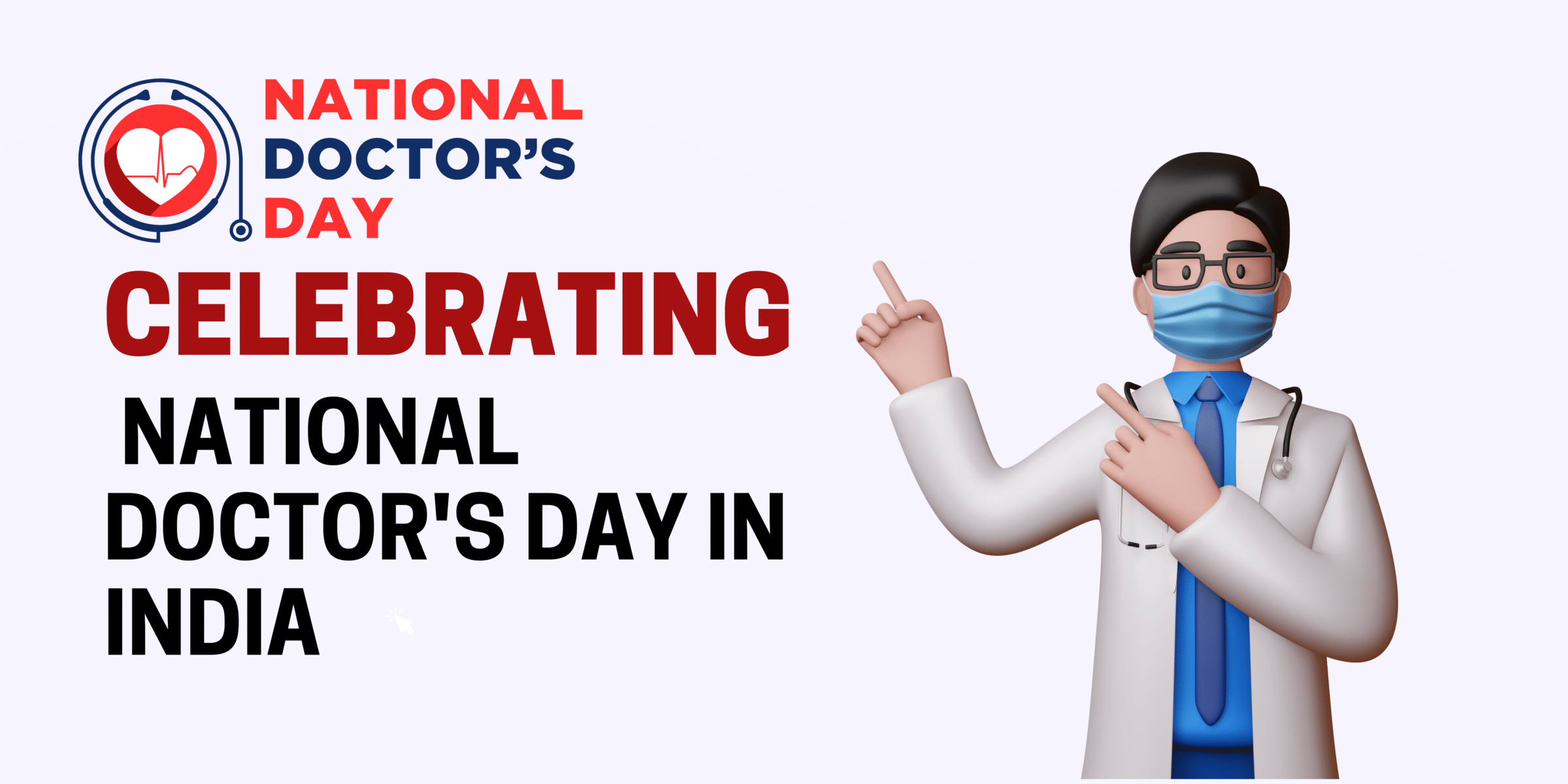
The article on healthcare innovations from OPP College offers a compelling look at the top advancements transforming the industry. It highlights technologies like AI, telemedicine, and wearable devices, showcasing how they improve patient care and streamline operations. The content is informative and forward-thinking, providing a great perspective on where healthcare is headed. It’s an excellent read for anyone interested in the future of healthcare innovation!